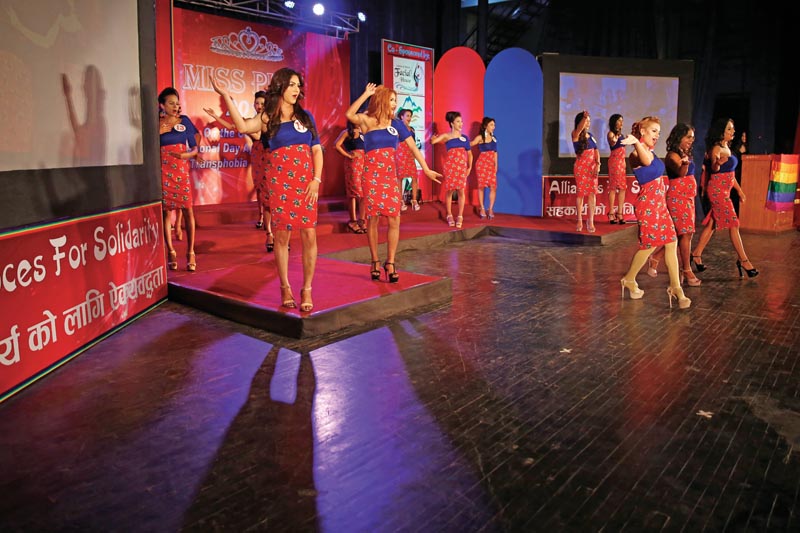Call to protect rights of sexual minorities
Kathmandu, May 17
The LGBTIQ Rainbow Flag was hoisted for the second time in the UN House in Kathmandu today.
On the International Day Against Homophobia, Transphobia and Biphobia, World Health Organisation Representative Dr Jos Vandelaer, representing the United Nations Resident Coordinator Valerie Julliand, reminded everyone that the Nepal’s constitution protected every citizen from discrimination irrespective of sexual orientation or gender identity.
However, lesbian, gay, bisexual, transsexual, intersex, queer and questioning persons still face acts of discrimination, including by their family. They also face prejudice in employment, health care and education, said a press release issued by the UN House.
Laxmi Ghalan, founder of Mitini Nepal, mentioned that society continued to view LGBTIQ people through a lens of fear and phobia; depriving many from the right to live with dignity in Nepali society. Wenny Kusuma, the UN Women Representative in Nepal, and the UN globe coordinator for Nepal explained that ‘coming out’ was LGBTIQ people’s self-disclosure of their sexual orientation or of their gender identity.
Manisha Dhakal, executive director of Blue Diamond Society, spoke on behalf of ‘National Federation on Sexual and Gender Minorities’. She said, “We LGBTIQ people of Nepal are very fortunate that we can participate in this rainbow flag raising ceremony, as many of our LGBTIQ community members in many countries around the world cannot, because of legal and social hostility.”
Meanwhile, the International Commission of Jurists has called on South Asian countries to end criminalisation of LGBTI identities, and to respect, protect, and fulfil LGBTI persons’ full range of human rights, including their right to equality before the law and equal protection of the law for all without discrimination, to which they are entitled due to their inherent dignity as human beings.
In Nepal, in 2007, the Supreme Court in a landmark judgment had directed the government to ensure that people of diverse gender identities and sexual orientations enjoyed their fundamental rights without discrimination.






